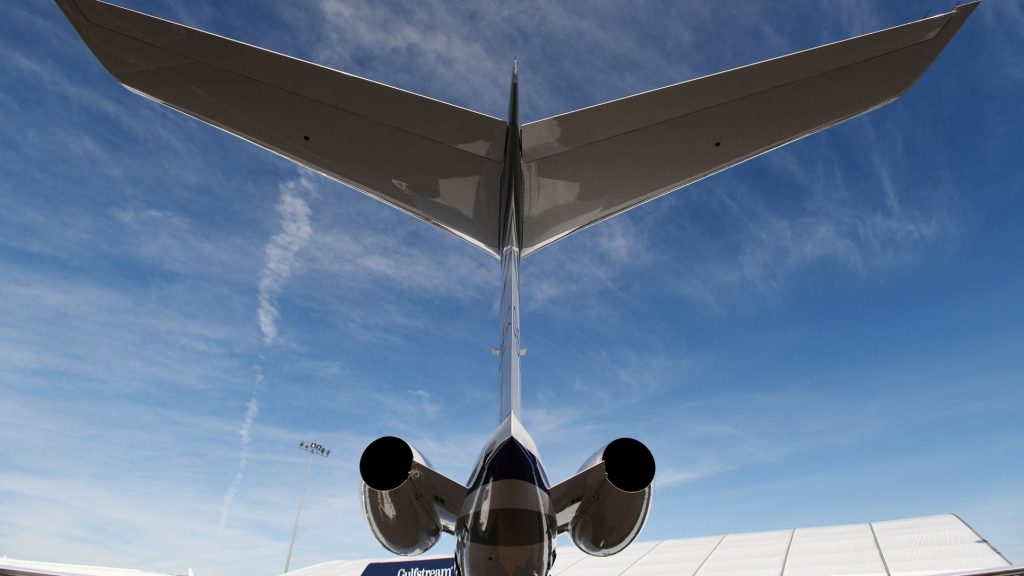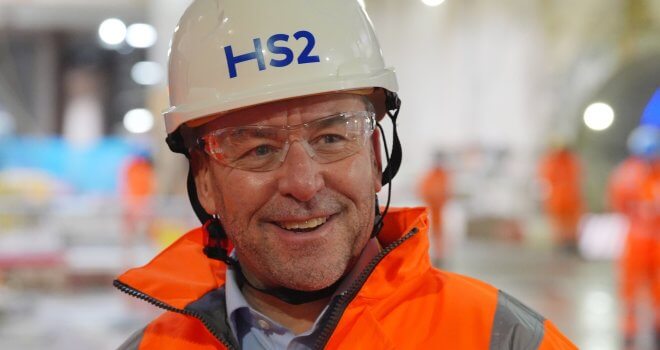Private Jet Makers Tout Emissions-Fighting Efforts, Backlogs At Air Show

Planemakers will trot out their latest models and efforts to reduce emissions at the world’s largest corporate jet show this week, as a boom in private travel faces pressure over climate, supply chain woes and economic uncertainty.
The National Business Aviation Association (NBAA) show starts on Tuesday in Orlando in the shadow of a United Nations aviation goal set this month to achieve net zero emissions by 2050. It will also test the strength of business jet demand, which surged during COVID-19 and swelled order backlogs, but could now face a softer economy.
Dassault Aviation SA Chief Executive Eric Trappier said on Monday he sees a slower economy but no impact yet on orders.
“It’s slowing down a little bit,” Trappier told Reuters on the sidelines of the show. “Is it the start of a crisis or not? It’s hard to say because the demand is strong.”
Honeywell International Inc has forecast up to 8,500 new business jet deliveries worth $274 billion from 2023 to 2032, up 15% from last year’s outlook.
While demand remains strong, there is hesitation among some buyers, said Zipporah Marmor, incoming chair of the International Aircraft Dealers Association (IADA).
“Those who can wait are waiting to see what the new year brings, to see if there will be more inventory, to see if there will be a softening of pricing,” said Marmor.
Despite a strong job market in the United States – the world’s largest market for business aviation – the risks of a downturn next year are mounting as the Federal Reserve ramps up its fight against inflation.
Business jets have also become a target of environmentalists – including one activist who lit his arm on fire during a fall tennis tournament – because they generate more emissions per person than commercial flights.
Kurt Edwards, director general of the International Business Aviation Council (IBAC), said attacks on the industry are “unfortunate” and don’t recognize gains from more efficient aircraft and sustainable aviation fuel (SAF).
BUSY QUARTER
U.S. business jet traffic recovered faster in 2021 than commercial flight traffic, soaring above 2019 levels. But the number of private flights are now roughly flat compared with 2021, according to Flightaware.
Independent aviation analyst Brian Foley expects private jet usage in the United States to go down to more traditional levels this fall.
Favorable taxation rules, however, helped shore up demand for pre-owned planes, according to U.S. attorneys and brokers.
This is the last year buyers can deduct 100% of the cost of an aircraft used for business purposes on their taxes if the aircraft is acquired and placed in service during 2022.
“People are expecting a very busy fourth quarter,” said Amanda Applegate, partner at Soar Aviation Law. That deduction is due to drop to 80% next year.
General Dynamics Corp’s Gulfstream Aerospace is displaying its latest luxury models, the G800 and outfitted G700 jets, after an absence from the show since 2019.
Despite being a sellers’ market, aviation attorney Stewart Lapayowker sees some early signs of softness.
Some buyers in real estate and construction, sectors hit by rising rates, are reconsidering their orders, said Lapayowker, who leads Lapayowker Jet Counsel in Florida.
While delayed parts have not interrupted deals of pre-owned planes, economic sanctions against Russian-owned aircraft due to the war in Ukraine have actually freed up inspection slots in Europe, Marmor said.
“There are a lot of service facilities that were serving Russian-owned aircraft that all of a sudden got a lot of space.”
Supply chain constraints also continue to dog planemakers, as some plan production increases next year to meet demand.
“If you’re not focusing on supply chain you’re not doing your job right,” Vipul Gupta, vice president and general manager of avionics, Honeywell Aerospace, said.
“My second job is chasing parts.”
(Editing by Deepa Babington and David Gregorio)




